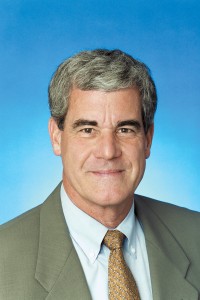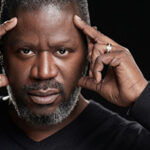Barry Mano comes from a family of referees. His father and brother officiated NBA games, and Mano wore black and white stripes as well for many years. Today, though, he serves as founder and president of the National Association of Sports Officials, or NASO, which represents more than 22,000 referees.

Mano took a circuitous route in his career, earning a bachelor’s degree in economics from the University of Wisconsin Parkside in 1970 and a master’s degree in urban affairs from UWM two years later.
While finishing his master’s, Mano was hired by Schlitz Brewing Co. to do reports on the minority populations of cities and towns where Schlitz had facilities. He enjoyed the work, but refereeing was in his blood.
After Chicago newspapers tore his brother apart for calls made during an April 1975 game in which the Bulls lost to the Los Angeles Lakers, Mano decided sports officials needed their own publication. Referee Magazine was born the next January. For a dicey three years, Mano worked without a salary to keep the publication afloat.
“Most people were saying, ‘Hey man, you don’t know what you’re getting involved in.’ The mortality rate for new start-ups and magazines is hovering at 85 percent,” Mano said. “I didn’t really care about all of that.”
Four years later, he founded the NASO as a way to find an audience for the magazine. It took off, and nearly 40 years later, the magazine is going strong and NASO is the leading advocate for sports officials. Members include everyone from NFL and college basketball referees to referees with the Wisconsin Interscholastic Athletic Association and rodeo officials.
As president, Mano acts as a standard-bearer for the industry and helps direct the organization’s resources into advocacy, education and training for officials. The NASO’s latest project is creating a virtual Hall of Fame for sports officials, who have traditionally been left out of professional league halls of fame. NASO and football referees also are at the center of the debate over concussions. As more and more players, fans and NFL administrators become aware of the harms associated with concussions, it has fallen to referees to make sure players are safe.
“There’s a lot of pressure being put on us in the area of player safety and concussions, about recognition and report,” Mano said. “… We don’t want to be doctors; we can’t be. But (we’re learning) some symptoms that, when you’re out there on a football filed or soccer pitch, that you should be aware of.”
Mano is fiercely protective of his 22,000 members. He has educated numerous journalists about the difficulties referees face in making split-second decisions and dares anyone to condemn an official who called a play as he or she saw it. He’s also protective because there are times when referees need protecting.
“Two times in the last 13 months, a referee was killed on a soccer pitch. … We have worked on physical assault laws. We were the ones that put in place the most robust liability insurance program. Why? Because they get sued,” Mano said. “I think that sports has become too important in our lives. It’s bothersome that we’ve gone that way. … I think it’s a signpost that something’s missing in our regular lives. We’ve become more disconnected. We’re trying to get connected and being a fan gets you connected to some community group.”
He doesn’t think there’s any easy fix to that problem, but Mano himself deals with it by making sure not to watch too many games. Instead, he turns to classical music and literature to unwind.
When he does tune in for a game though, you can bet he’s not watching the players – he’s watching his referees.






